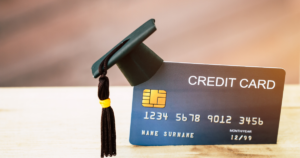When you’re a freelancer or contractor, your taxes are a little different compared to a standard full-time employee. Many Americans who were laid off or furloughed during the pandemic sought freelance or contracting work. As a non profit credit counseling agency, ACCC is here to explain what steps to you need to take when paying taxes as a freelancer.
Steps to Take When Paying Taxes as a Freelancer
Get the correct forms from your clients.
When you started working for a client, you probably filled out a W-9 form for them. To complete your taxes now, you’ll need a 1099 form.
Calculate the minimum you have to earn to pay freelance or contractor taxes.
If you earn $400 or more from freelance work any given year, you’re responsible for paying taxes on those earnings. It’s recommended that you set aside 25 – 30% of every freelance check you receive in a separate savings account. Use this to cover your taxes. This large percentage also includes your 15.3% self-employment tax, which covers your Social Security and Medicare taxes. At a fulltime normal job, your Social Security and Medicare taxes are automatically taken out of your paycheck, and that your employer covers half those taxes. But if you’re a freelancer, you’re considered as an employee and an employer. That’s why the IRS has you cover the whole 15.3%. This is why you should set aside 25 – 30% of your checks in a separate savings account to cover both your income and self-employment taxes.
Figure out when you have to pay your taxes.
If you expect to owe at least $1000 in taxes this year, you should pay taxes quarterly to abide by the IRS. Since nobody’s automatically withholding taxes from your freelance income throughout the year, you’ll likely have to estimate your taxes for the approaching year and pay taxes each quarter. Also, don’t forget that along with paying quarterly taxes, you’re still required to file an annual tax.
*FYI: the IRS has extended the federal tax filing deadline from April 2021 to May 17, 2021!
For freelancers who are only earning a couple thousand dollars or less each year though, don’t worry about the quarterly taxes – just report your income when it’s time to file your tax return.
But if you’re thinking that you’ll owe $1000 or more in taxes, fill out the Form 1040-ES from the IRS. It will guide you in figuring out and paying your estimated taxes.
Last Things to Note.
If your clients didn’t give you a 1099-MISC or 1099-K (the latter being if your clients use online payment systems such as PayPal to pay you), use the Schedule C tax form to report your cumulative self-employment earnings to the IRS. This means you’ll be reporting the amounts you already reported on the 1099 forms you got from clients, as well as the amounts that weren’t reported yet from clients who didn’t give you a 1099.
Paying taxes as a freelancer can be confusing at first, but if you keep careful records and set aside money to pay your taxes as you go, it will get easier. And the bright side? You’ll likely discover a plethora of deductions to claim! Consider the expenses that were necessary for your business, such as your home office, computer equipment and software, and work-related mileage (as well as these other possible expenses). The key is diligent documentation and bookkeeping – save those receipts and invoices! This documentation helps prove the expenses as vital to your business. It will save you money when you file taxes.
If you’re struggling to pay off debt, ACCC can help. Sign up for a free credit counseling session with us today.






